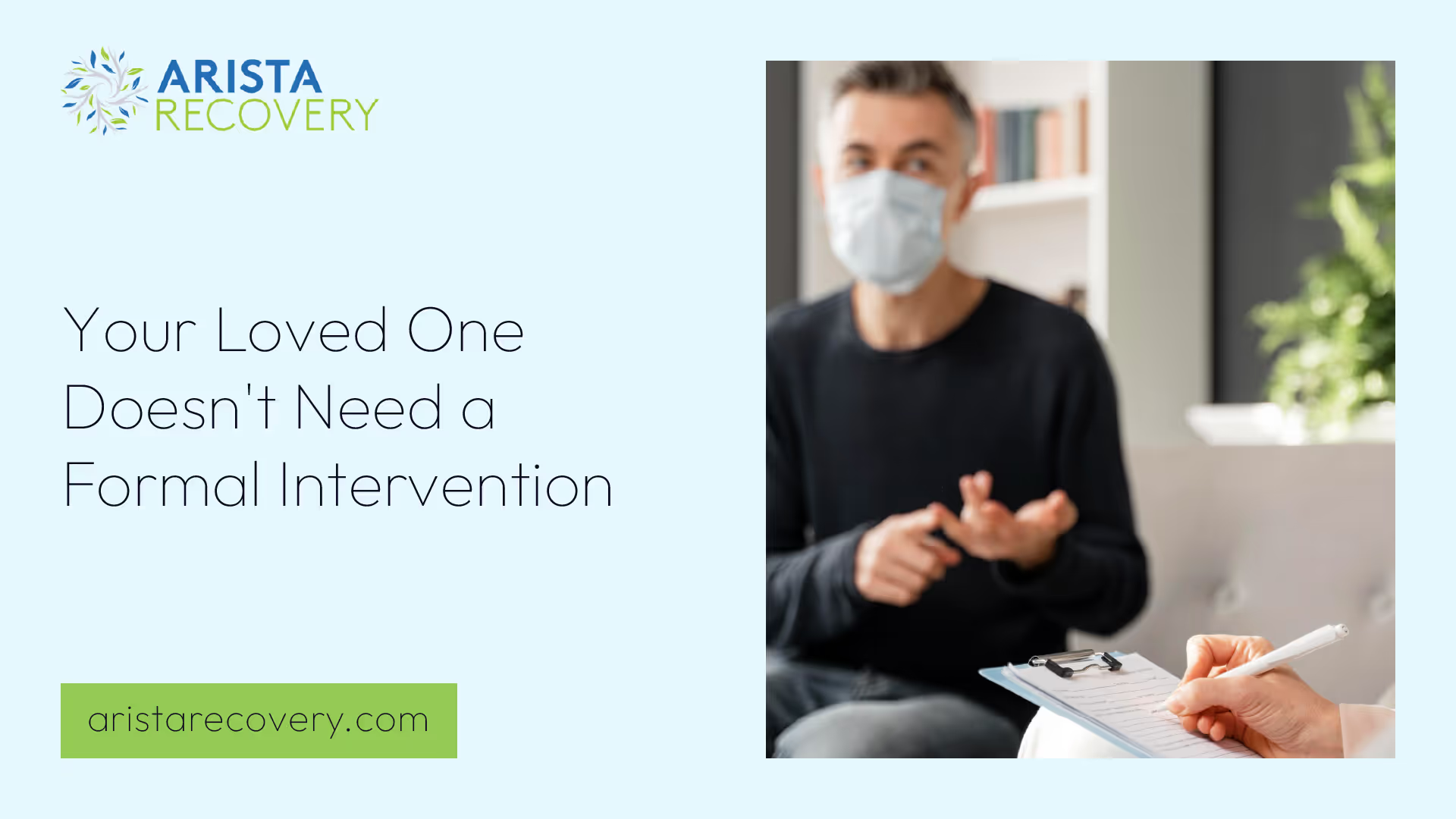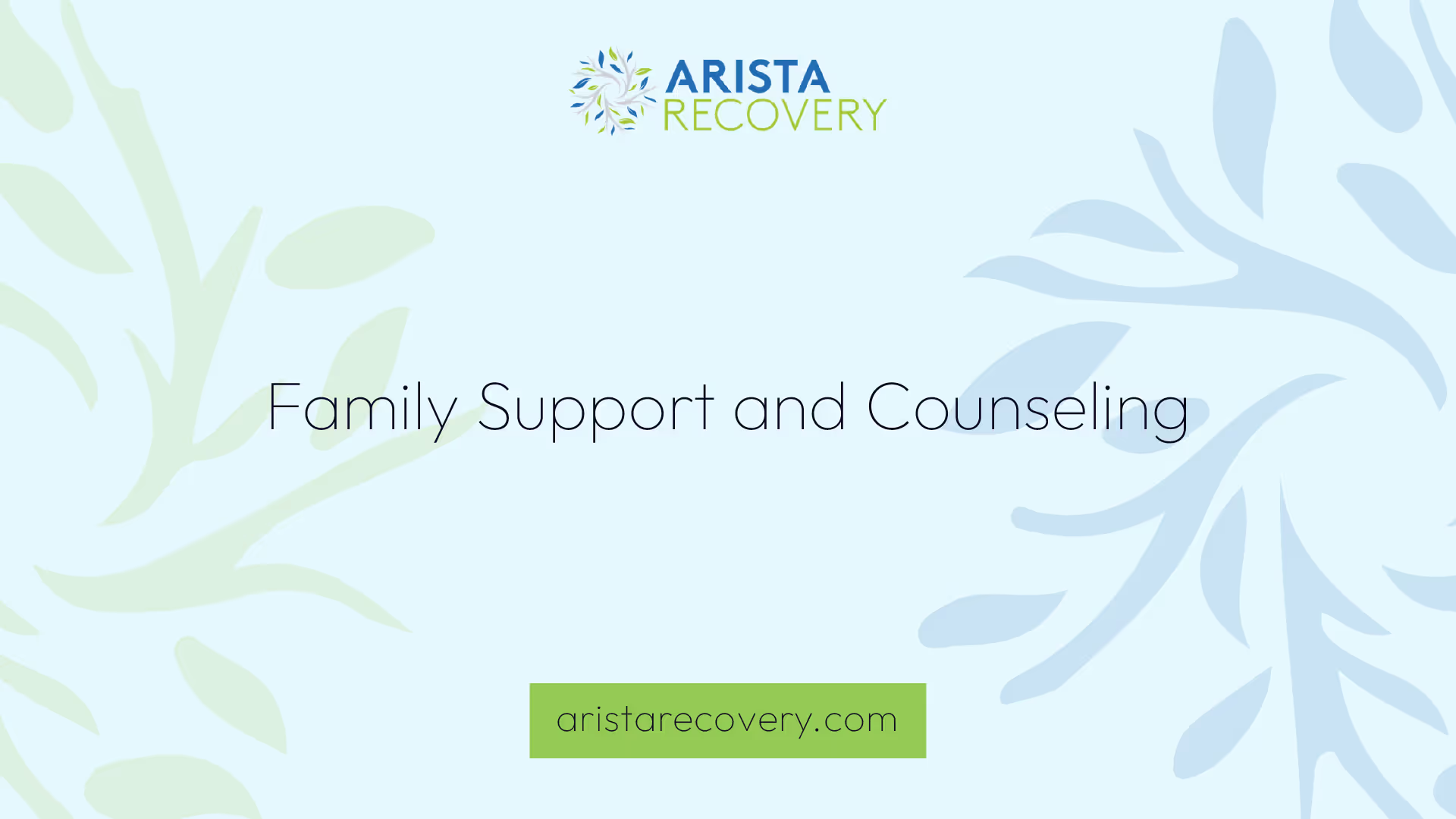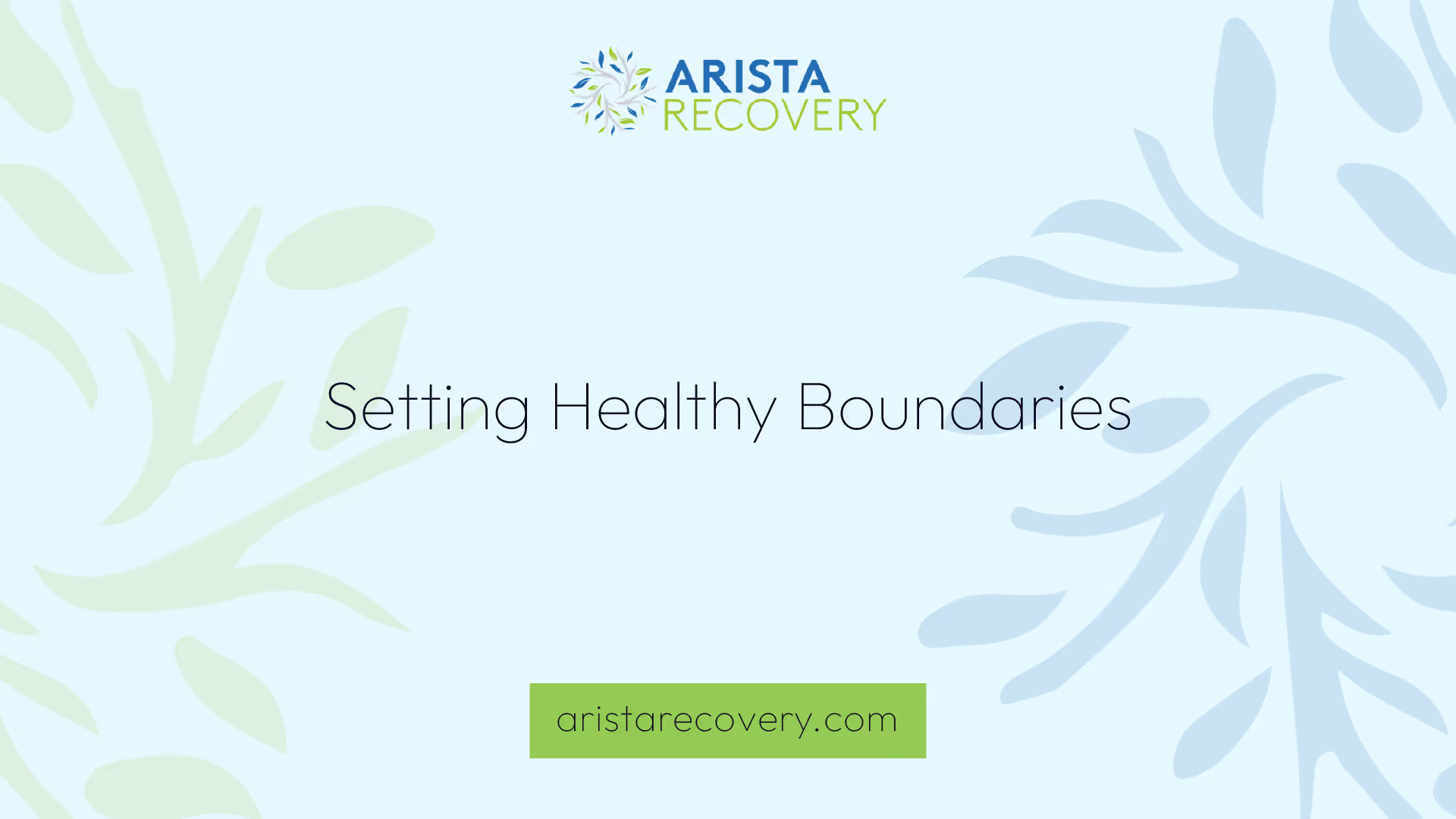Your Loved One Doesn't Need a Formal Intervention


Understanding Addiction
Impact of Substance Use
Substance abuse can lead to a range of severe health issues. These issues can include liver damage, heart problems, and brain complications. Confronting your loved one about these health concerns, especially when they are facing mortality or in the hospital, can help them realize the severity of the situation and the need for help. Early recognition of these impacts is crucial in providing the necessary support before formal intervention becomes essential.
Signs of Addiction
Recognizing the signs of addiction is the first step in determining whether your loved one doesn’t need a formal intervention. Key indicators include:
- Denial and Refusal to Acknowledge the Problem: Despite the detrimental impact of their substance use on their health, relationships, and work, they persistently deny the issue [1].
- Destructive and High-Risk Behavior: If your loved one's behavior is consistently destructive and poses high risks, such as drinking and driving or a history of overdoses from drug use, it may indicate a deeper issue of addiction.
- Excessive Deception and Secrecy: This can manifest through lying, hiding, cheating, stealing, and other deceptive behaviors to obtain more of the substance they desire [1].
For more detailed insights, you may explore the article on addiction: a family disease or learn about the myths about drug detox.
By understanding these impacts and signs, families and individuals can make informed decisions about whether formal intervention is necessary or if other support methods might be more appropriate. For those interested in various treatment options, the article on top ways to cure your addiction and alcoholism provides comprehensive guidance.
Intervention and Treatment
Addressing addiction requires timely and appropriate interventions. Understanding the importance of early intervention, the role of Medication-Assisted Treatment (MAT), and the differences between informal and formal interventions can guide families in making informed decisions.
Importance of Early Intervention
Early intervention plays a critical role in addressing addiction. The primary goal is to reduce harm associated with substance misuse, improve health and social function, and prevent the progression to a more severe substance use disorder [1]. Substance abuse can lead to a range of health issues, including liver damage, heart problems, and brain complications. Confronting your loved one early about their health concerns can help them realize the severity of the situation.
Medication-Assisted Treatment (MAT)
Medication-Assisted Treatment (MAT) combines behavioral interventions with medications to treat substance use disorders. MAT has shown to reduce illicit drug use, decrease overdose deaths, and improve retention in treatment [1]. The medications used in MAT work to normalize brain chemistry, block the euphoric effects of alcohol and opioids, relieve physiological cravings, and normalize body functions without the negative effects of the abused substance.
Informal vs. Formal Interventions
Interventions can be categorized into informal and formal types. Informal interventions involve having open and honest conversations with your loved one about their addiction, expressing concern, and offering support and encouragement. These conversations are less structured and can be initiated by anyone close to the individual.
Formal interventions are more structured and organized, typically involving a professional interventionist who guides the process. This type of intervention often includes multiple sessions and a detailed plan to encourage the individual to seek treatment.
Understanding these differences can help determine if your loved one doesn’t need a formal intervention and if an informal approach might be more suitable. For more insights on addiction: a family disease and how to navigate these challenges, explore related topics within our resources.

Family Support and Counseling
Role of Family in Treatment
Family support can play a significant role in the treatment and recovery of individuals struggling with substance use disorders. According to SAMHSA, family members are often the first to notice changes in mood or behavior, making them crucial in connecting loved ones with the necessary treatment and resources. The involvement of family members can serve as a powerful motivator for individuals to seek or continue treatment [2].
The support from family can come in various forms, such as emotional support, providing a stable home environment, or assisting with daily responsibilities. By offering a strong support system, families can help their loved ones feel less isolated and more encouraged to pursue recovery.
Benefits of Family Counseling
Family counseling is a valuable tool in addressing substance use disorders, as it focuses on supporting the entire family unit rather than just the individual struggling with addiction. There are several benefits to family counseling:
- Improved Communication: Counseling sessions can help family members learn effective communication skills, which are essential for expressing concerns, setting boundaries, and providing support.
- Understanding Addiction: Family counseling can educate family members about the nature of addiction, dispelling myths and misconceptions, and fostering a deeper understanding of the challenges their loved one faces. For additional insights, explore our article on myths about drug detox.
- Emotional Support: Counseling provides a safe space for family members to express their emotions, share their experiences, and receive support from a trained professional. This can be particularly beneficial in reducing feelings of guilt, shame, or frustration.
- Building Resilience: Family counseling can help families develop coping strategies and resilience, enabling them to better support their loved one's recovery journey. By prioritizing their own health and well-being, caregivers can maintain the strength needed to help their loved ones [3].
- Strengthening Relationships: Through counseling, families can work on repairing and strengthening their relationships, fostering a healthier and more supportive home environment.
Family involvement in treatment can significantly enhance the effectiveness of recovery efforts. By understanding the role of family and utilizing the benefits of family counseling, families can offer the necessary support and create an environment conducive to recovery. For more information on how addiction affects families, visit our article on addiction: a family disease.

Setting Healthy Boundaries
Setting healthy boundaries is essential for maintaining psychological well-being and ensuring that individuals and families impacted by substance use receive the best possible care. This section explores the importance of self-care and the steps to establish effective boundaries.
Self-Care and Boundaries
Self-care involves recognizing and respecting your own needs and limitations. Setting boundaries is a key component of self-care, as it helps to protect your mental and emotional health. It requires self-awareness and good communication skills to convey assertiveness and clarity. When setting boundaries, it's important to express your feelings openly and respectfully, without making demands, but rather asserting your needs and priorities.
Healthy boundaries are crucial in clinical relationships with patients and clients. Poor boundaries can lead to harm in these relationships. For health professionals, maintaining professional boundaries is a fiduciary duty to protect the client's interests above their own [4]. This principle is also applicable to family dynamics impacted by addiction, where clear and respectful boundaries can support everyone's well-being.
Establishing Boundaries
Establishing boundaries involves clear communication about mutual needs and expectations. This is particularly important in relationships affected by substance use. Open communication and setting clear boundaries are essential for healthy intimate partnerships [4]. Here are some steps to establish effective boundaries:
- Identify Your Limits: Understand what you can tolerate and what makes you feel uncomfortable or stressed.
- Communicate Clearly: Use "I" statements to express your needs and feelings without blaming or criticizing others.
- Be Consistent: Maintain your boundaries even when it is challenging. Consistency reinforces the importance of the boundaries you set.
- Seek Support: Don't hesitate to ask for help from friends, family, or professionals when needed. Professional guidance can be particularly useful in navigating addiction intervention [5].
Maintaining healthy boundaries is also important at work, especially with flexible working arrangements and remote work. Establishing boundaries during the interview process can help to determine acceptable work practices.
By setting and maintaining healthy boundaries, individuals can better manage their own well-being while supporting their loved ones through the challenges of addiction. For more information on how addiction impacts families, visit our article on addiction: a family disease.
Seeking Professional Guidance
Importance of Expertise
While 'your loved one doesn’t need a formal intervention' may hold true in some cases, the importance of professional guidance cannot be underestimated. Seeking the expertise of mental health and addiction professionals can help families navigate the complex path of addiction intervention more effectively and confidently [2]. An intervention is a carefully planned process that family and friends can undertake, often with the help of a licensed alcohol and drug counselor or another healthcare professional.
Professionals bring a wealth of experience and knowledge, making them invaluable in guiding families through the emotional and logistical challenges of addiction intervention. Their expertise ensures that the intervention is conducted in a manner that is both safe and effective, reducing the risk of confrontation and making it more likely that the individual will accept treatment.
Navigating Addiction Intervention
Navigating addiction intervention can be challenging, especially for those unfamiliar with the complexities of substance use disorders. Professional guidance can help demystify the process and provide a structured approach to addressing addiction. Often, interventions occur without an intervention professional taking part, but having expert help may be best. Sometimes the intervention even occurs at the professional's office [6].
Steps to navigate an addiction intervention include:
- Planning: Collaborate with a healthcare professional to develop a comprehensive intervention plan. This plan should outline the goals, strategies, and potential outcomes of the intervention.
- Gathering Information: Collect data on the individual's substance use, including the type of substance, frequency, and impact on their life and relationships.
- Assembling the Team: Choose a group of people who care about the individual and can offer support. This team can include family members, friends, and professionals.
- Setting Boundaries: Define clear boundaries and consequences if the individual refuses to accept treatment. This step is crucial for ensuring that the intervention has a lasting impact.
- Conducting the Intervention: Execute the intervention according to the plan, with the professional guiding the process to ensure it remains focused and productive.
Seeking professional guidance is not only beneficial for the individual struggling with addiction but also for the family members involved. Family counseling, for instance, can play a pivotal role in treatment, fostering healing and improving overall family functioning. For more information on how addiction impacts families, read our article on addiction: a family disease.
By leveraging the expertise of professionals, families can approach addiction intervention with confidence and clarity, increasing the likelihood of a successful outcome. For additional resources and advice on navigating addiction treatment, visit our articles on myths about drug detox and top ways to cure your addiction and alcoholism.
Self-CCare Practices
Saying No and Setting Limits
Setting healthy boundaries is essential for maintaining psychological well-being, especially when dealing with addiction in the family. It requires self-awareness and good communication skills that convey assertiveness and clarity. Individuals must express their feelings openly and respectfully, without making demands, but rather asserting needs and priorities as a form of self-care.
- Self-Awareness: Knowing one’s limits and recognizing when to say no.
- Assertiveness: Clearly and respectfully expressing one’s needs.
- Consistency: Maintaining boundaries consistently to avoid confusion.
Healthy boundaries are crucial for maintaining psychological well-being in clinical relationships. Poor boundaries and boundary violations can lead to harm in these relationships. For families dealing with addiction, setting boundaries helps in creating a supportive yet structured environment for recovery.
Asking for Help
Asking for help is a critical aspect of self-care, especially when dealing with a loved one’s addiction. It involves recognizing when one is overwhelmed and seeking support from professionals or support groups.
- Recognize Overwhelm: Understand when the situation is beyond personal control.
- Seek Professional Help: Engage with therapists, counselors, or addiction specialists.
- Join Support Groups: Participate in groups where experiences and strategies can be shared.
Maintaining healthy boundaries in relationships is essential for clear communication about mutual needs and expectations. Healthy intimate partnerships require open communication and setting clear boundaries. For more information on how to navigate addiction intervention, visit our article on navigating addiction intervention.
By effectively saying no, setting limits, and asking for help, individuals can create a balanced, supportive environment that promotes recovery without the need for a formal intervention. For more detailed guidance on addiction treatment, explore our articles on the methamphetamine vaccine and myths about drug detox.
References
[1]: https://www.newhorizonscentersoh.org/blog/your-loved-one-doesn-t-need-a-formal-intervention
[3]: https://www.samhsa.gov/families
[4]: https://positivepsychology.com/great-self-care-setting-healthy-boundaries/
[5]: https://www.mayoclinic.org/diseases-conditions/mental-illness/in-depth/intervention/art-20047451
You’re not alone in this.
When mental health challenges and addiction intersect, it can feel isolating. At Arista, we offer compassionate, evidence-based, and trauma-informed care to help you heal, grow, and move forward.
You’re not alone in this.
When mental health challenges and addiction intersect, it can feel isolating. At Arista, we offer compassionate, evidence-based, and trauma-informed care to help you heal, grow, and move forward.
Support that moves with you.
You’ve taken a brave first step. At Arista Recovery, we’re here to help you continue with best-in-class care designed for long-term healing and support.
.webp)






